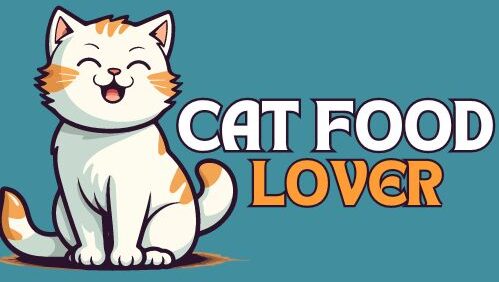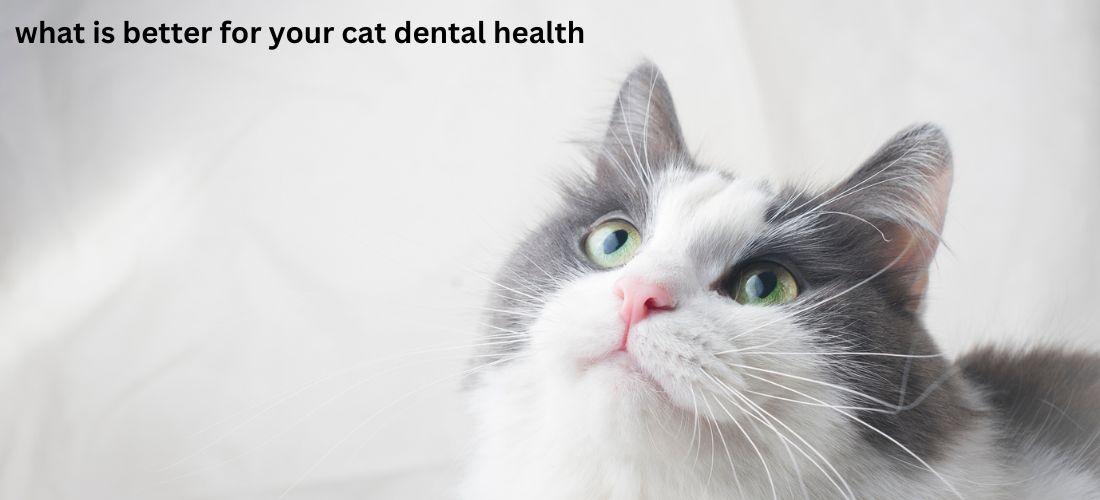What is better for your cat’s dental health: preventing issues early or managing a cat with bad teeth? Maintaining good oral hygiene is essential for your cat’s overall health and happiness. Dental problems, if neglected, can cause discomfort and affect their quality of life. By prioritizing preventive care, you can significantly reduce the likelihood of your cat developing severe dental issues, ensuring they enjoy a healthy and pain-free existence.
Understanding Dental Health in Cats: What Should You Know?
Taking care of your feline friend’s oral health is crucial for their overall well-being.As cats age, they may require a special diet to maintain their dental health. Older cats or those with dental issues may benefit from a soft food diet or a prescription diet recommended by a veterinarian. Some cats may even need dental surgery to address severe dental problems. Whether you have a toothless cat or a cat with bad teeth, it’s important to prioritize their dental health to ensure they live a comfortable and healthy life.
When choosing the best cat food for older cats or cats with dental issues, consider options like canned food for older cats or dental cat food specifically designed to promote oral health. Brands like Tiki Cat offer options like Care Chicken Flavor Dry Cat Food that cater to cats’ dental needs. By providing your cat with the right nutrition, you can help them maintain strong teeth and gums as they age.
Importance of Dental Care
Overall feline dental health is crucial for the well-being of your adult cat. Many cat owners may not realize the importance of dental care for their pets. Feline dental disease is a common issue among cats and dogs, which can be prevented by providing proper dental care and dry chicken flavor. This form of dental food is easier for cats to eat compared to adult dry cat food or other pet food options.
Providing dental treats and using dental food products formulated for cats can help your cat maintain good dental health. If your cat is diagnosed with dental disease, it may have trouble eating regular kibble or wet food. This is where a hepper nomnom cat bowl can come in handy, as it is designed to make eating easier for cats with dental issues.
Anatomy of a Cat’s Teeth and Mouth
Due to dental issues, one cat may have trouble eating certain foods. Common dental problems can make it difficult for cats to chew properly. Veterinary dental care is essential to maintaining good oral health in cats.
Cat food offers a variety of benefits, such as making it easier for your cat to eat and promoting good overall cat food for older cats. However, some cat food products may contribute to dental issues if not properly formulated.
Cool cat company offers a delicious and nutritious cat food recipe that is best overall cat food for cats of all ages. Choosing the right cat food can help prevent oral health problems and keep your cat’s teeth and mouth in top shape.
Signs and Symptoms of Dental Issues
A cat would typically show signs of dental issues such as bad breath, loss of appetite, drooling, and difficulty eating. The cat food may become less appealing to your furry friend, especially if your cat bowl is our favorite. It’s important to pay attention to these symptoms and consult a veterinarian if you notice any changes in your cat’s oral health.
What should I feed my cat with dental problems?
When your cat has dental issues, it is important to provide proper food that is not too hard for them to eat. Consider switching to a special diet designed for cats with dental problems. One recipe for such cat food includes soft and moist textures that are easier for your cat to consume.
Dietary Considerations for Dental Health
Dietary considerations for dental health are important in order to prevent dental issues and maintain a healthy smile. It is crucial to eat a balanced diet that is rich in vitamins and minerals to support overall oral health. Avoiding sugary and acidic foods can help prevent tooth decay and gum disease. Consider incorporating recipe cats that are high in fiber and low in added sugars to promote good dental health.
Ingredients to Look for in Dental Health Cat Foods
When searching for the best cat food to promote dental health, it is important to look for dental-specific ingredients. Ingredients such as taurine and vitamin C can help prevent dental issues and improve overall oral health.
Additionally, fiber-rich ingredients like peas or barley can help cats maintain healthy teeth by reducing plaque buildup. Lastly, antioxidant-rich ingredients like blueberries or cranberries can also support dental health in cats.
Feeding Techniques to Support Dental Care
Dental issues can make it difficult for some individuals to eat comfortably. By utilizing feeding techniques that support dental care, such as cutting food into smaller pieces or choosing softer options, individuals with these challenges can still maintain proper nutrition and dental health.
How to Maintain Good Oral Hygiene with Dental problems?
Good oral hygiene is essential for maintaining overall dental health, especially when dealing with dental issues. Brushing and flossing regularly can help prevent further problems. It is also important to visit a dentist regularly for check-ups and cleanings. Avoiding sugary foods and drinks can help protect teeth from decay.
Eating a well-balanced diet that is rich in vitamins and minerals can also improve oral health. Drinking plenty of water and avoiding tobacco products can help prevent gum disease and other oral issues. Taking care of your teeth and gums can lead to a brighter smile and better overall health.
Regular Brushing Routine
Having a regular brushing routine is essential for maintaining oral health and preventing dental issues. Brushing twice a day helps remove plaque and bacteria that can lead to decay and gum disease. It is important to brush after meals, especially if you have foods that are prone to eat causing cavities.
Supplementary Dental Care Products
Supplementary Dental Care Products offer additional support in maintaining oral health and preventing dental issues. From toothpaste to floss, these products complement regular brushing and help remove plaque and bacteria that can cause cavities and gum disease. Including mouthwash and chewing gum can also freshen breath and make it more enjoyable to eat.
Diet and Dental Health: What’s the Connection?
Dental issues can often affect our ability to eat properly. Problems such as cavities, gum disease, and missing teeth can make it difficult to chew food comfortably. This can lead to poor nutrition and overall health issues. That’s why maintaining good dental health is crucial for proper eating habits and overall well-being.
Impact of Diet on Dental Health
Diet plays a crucial role in dental health. Consuming sugary and acidic foods can lead to dental issues such as cavities and decay. It is important to eat a balanced diet rich in nutrients to maintain strong and healthy teeth. Avoiding excessive consumption of sugary snacks and drinks can prevent potential dental problems.
Importance of Dental-Specific Diets
Dental-specific diets are important for maintaining good oral health. These diets are specially formulated to promote dental health by providing essential nutrients that can help prevent dental issues such as cavities and gum disease. Incorporating these diets into your pet’s routine can make a significant difference in their overall dental health.
Some dental-specific diets are designed with a specific texture or shape that can help clean teeth as your pet chews. These diets can reduce plaque and tartar buildup, ultimately lowering the risk of dental problems. Regularly feeding your pet these specialized diets can help ensure their teeth stay strong and healthy.
Tips for Maintaining Your Cat’s Dental Health: How Can You Help?
Tips for Maintaining Your Cat’s Dental Health: Regular dental check-ups, proper tooth brushing, and providing dental treats can help prevent dental issues. Ensure your cat has access to toys or food that encourage them to eat in a way that promotes dental health.
Provide Dental-Friendly Diet and Treats
Ensuring your pet has a proper diet can help prevent dental issues down the line. Opt for foods that are less likely to cause plaque build-up, such as dry kibble instead of wet food. Additionally, consider offering treats specifically designed to promote dental health.
Schedule Regular Veterinary Check-ups
Regular veterinary check-ups are essential for your pet’s overall health and well-being. By maintaining a routine schedule, your veterinarian can catch any potential health issues early on, including dental issues. Dental problems can make it difficult for your pet to eat and can lead to a decrease in their quality of life.
Dealing with Bad Teeth: What Are Your Cat’s Treatment Options?
Dealing with Bad Teeth: Cats can suffer from a variety of dental issues that can affect their ability to eat and overall quality of life. In some cases, treatment options may include dental cleanings, extractions, or even root canals to address the problem.
Regular dental check-ups can help catch issues before they become serious and potentially save your cat from discomfort and pain. It’s important to consult with your veterinarian to determine the best course of action for your feline friend’s oral health.
How do you treat a cat with dental problems?
When a cat is experiencing dental issues, it may have difficulty eating properly. To treat a cat with dental problems, it is important to take them to the veterinarian for an examination. The vet may recommend a dental cleaning or extraction to alleviate the issue. Additionally, providing soft or wet food can make it easier for the cat to consume their meals.
How can I help my cat with dental pain?
Dental issues can be a source of great discomfort for your feline friend. If you suspect your cat is suffering from dental pain, it’s important to consult with your veterinarian for proper diagnosis and treatment. In the meantime, you can help by offering soft to eat foods and keeping their water bowl filled to encourage hydration.
What do you feed a senior cat with no teeth?
Feeding a senior cat with no teeth can present some challenges, but there are a variety of options available to ensure they are still getting the nutrition they need. Some suggestions for feeding a senior cat with no teeth include:
Wet or canned cat food: This is typically easier for a toothless cat to eat compared to dry food. Look for soft textures or pates that can be easily lap up or swallow without needing to chew.
Softened dry food: You can try moistening dry food with water or broth to make it easier for your cat to eat. Let it sit for a few minutes to soften before offering it to your cat.
Prescription diets: Some veterinary clinics offer specialized diets designed for cats with dental issues or no teeth. These diets often come in soft or pate forms that are easy to eat.
Homemade pureed food: You can also try making your own cat food by blending cooked meats or fish with water or broth to create a smooth puree that is easy for your cat to consume. Just make sure the recipe is balanced and includes all the necessary nutrients.
Conclusion
prioritizing preventive dental care is paramount for your cat’s health. Addressing issues early prevents pain and discomfort, enhancing their overall well-being. Regular veterinary check-ups and proper oral hygiene routines ensure your cat enjoys a healthier life, minimizing the need for managing severe dental problems.

